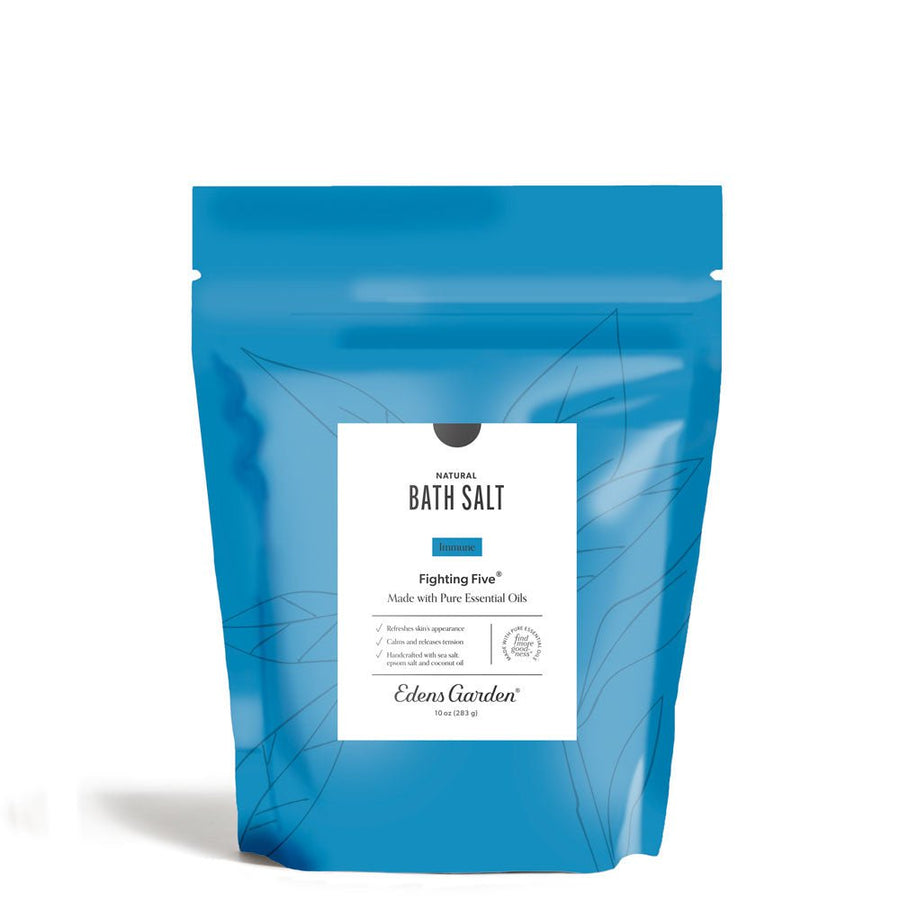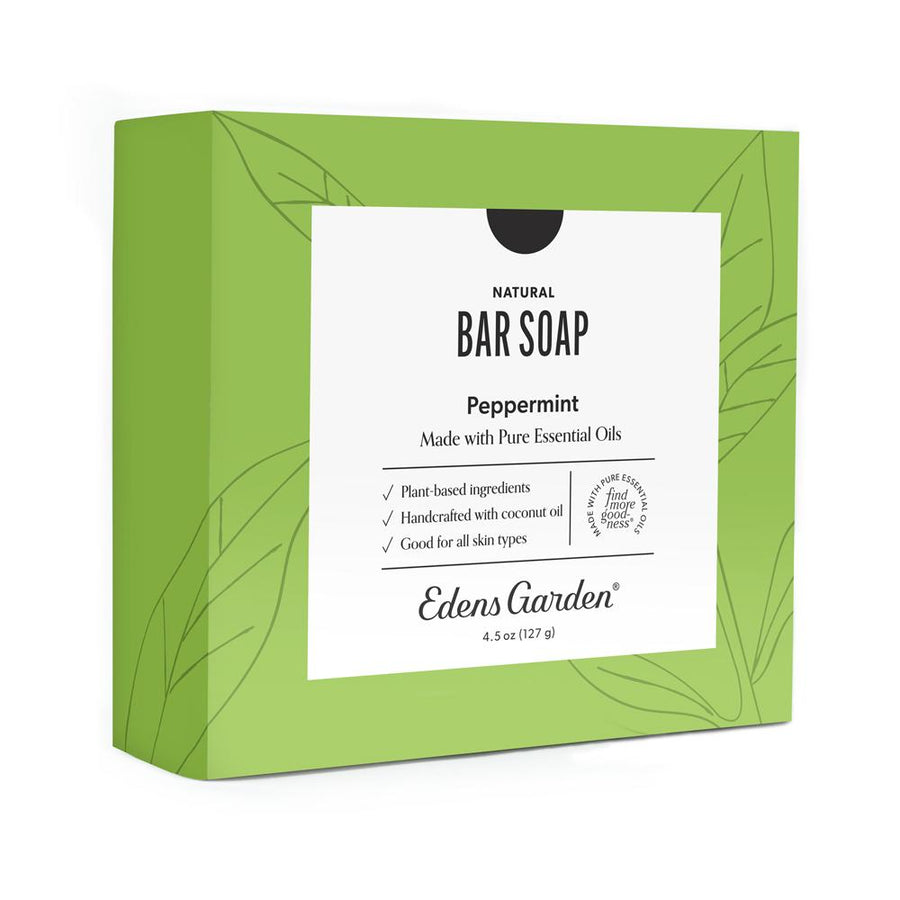Is It Safe To Add Essential Oils To Toothpaste?

Essential oils have long been praised for their natural antibacterial properties, refreshing aromas, and therapeutic benefits—but can they be safely added to your toothpaste? With the growing popularity of natural oral care and debates surrounding fluoride, many people are looking for ways to enhance their dental hygiene routine using essential oils like Peppermint, Tea Tree, and Clove. While these oils are known for their ability to freshen breath and support gum health, it's important to understand the potential benefits and risks before incorporating them into your daily brushing routine.
In this blog, we’ll explore whether essential oils are safe for toothpaste, which oils may be beneficial for oral health, and how to use them properly. Plus, we’ll discuss the potential risks and best practices to ensure your smile stays bright and healthy. If you're curious about upgrading your oral care routine with essential oils, keep reading to find out everything you need to know.
Essential Oils for Oral Health
Many essential oils contain natural antibacterial, antifungal, and anti-inflammatory properties, making them popular in natural oral care products. While research suggests that some essential oils may support gum health, freshen breath, and help combat oral bacteria, it’s crucial to understand their proper use and potential risks. Below, we explore essential oils that have been studied for their oral health benefits.
Peppermint Essential Oil
Peppermint oil is widely recognized for its ability to freshen breath, thanks to its high menthol content. Research has shown that Peppermint essential oil has antimicrobial properties that may help reduce oral bacteria linked to bad breath and plaque buildup.
A 2013 study found that Peppermint oil was effective in inhibiting the growth of common oral pathogens, making it a frequent ingredient in natural toothpaste and mouthwash formulations.[1]
Tea Tree Essential Oil
Tea Tree oil is known for its powerful antibacterial and antifungal properties. A study published in the Australian Dental Journal found that Tea Tree oil exhibited anti-inflammatory activity against dental plaque and chronic gingivitis.[2] Some natural mouthwashes and toothpaste include Tea Tree oil to support gum health, though experts caution against ingesting it.
Clove Essential Oil
Clove oil has been used for centuries in traditional dentistry due to its natural analgesic and antibacterial properties. A study in the Journal of Dentistry found that Clove oil was effective in reducing pain and inflammation, making it a common ingredient in natural oral care products.[3] It contains eugenol, which is known for its numbing effects and is sometimes used in temporary dental products.
Cinnamon Essential Oil
Cinnamon oil contains cinnamaldehyde, a compound known for its antimicrobial properties. Research published in 2020 indicates that Cinnamon oil may help reduce oral bacteria and improve overall oral hygiene.[4] It’s often included in natural toothpaste and chewing gum for its ability to freshen breath while supporting oral health.
While these essential oils have been studied for their potential benefits in oral care, it’s important to use them cautiously. Essential oils are highly concentrated and can be irritating or harmful if swallowed. Always consult a dental professional before incorporating them into your oral hygiene routine.
Is it Safe To Add Essential Oils To Toothpaste?
While essential oils are praised for their natural antibacterial and refreshing properties, adding them to toothpaste raises important safety concerns. Essential oils are highly concentrated plant extracts, and when used improperly, they may pose risks to the delicate tissues inside the mouth and the digestive system if swallowed.
One key concern is the potential for essential oils to irritate the mucous membranes that line the mouth. Oils like Peppermint, Tea Tree, and Clove contain potent compounds that, while beneficial in small amounts, can cause irritation, burning sensations, or dryness when used undiluted or in excess.
According to health experts, prolonged exposure to undiluted essential oils may lead to tissue damage or increased tooth sensitivity. This is why many commercial toothpastes containing essential oils use them in highly controlled, diluted amounts.
Ingesting essential oils, even in small quantities, also carries potential risks. Some essential oils, if swallowed, may cause nausea, dizziness, or stomach irritation. While essential oils like Peppermint are generally recognized as safe (GRAS) by the FDA for flavoring in food, the concentration used in DIY oral care products may exceed safe limits if not properly measured.
If you are considering incorporating essential oils into your oral care routine, it is crucial to proceed with caution. Experts recommend using essential oils in pre-formulated oral care products that are specifically tested for safety, rather than mixing them into toothpaste or DIY products at home. Always consult with a dental professional before adding essential oils to your dental hygiene practices to ensure they are safe and effective for your needs.
Natural Oral Care: Choosing Safer Ingredients
Many commercial toothpastes contain harsh chemicals that may do more harm than good when used daily. Ingredients like sodium lauryl sulfate (SLS), triclosan, artificial sweeteners, and fluoride have raised concerns due to their potential links to mouth irritation, hormone disruption, and even long-term health risks.
SLS, a common foaming agent, has been associated with mouth ulcers and gum irritation, while triclosan, an antibacterial agent, has been banned in some products due to its potential effects on hormone regulation and bacterial resistance. Artificial sweeteners like saccharin and aspartame, often added for taste, have also been scrutinized for their potential health risks.
For those looking to avoid questionable ingredients, natural oral care products offer a safer alternative. Professionally formulated natural toothpastes made with essential oils can harness the antibacterial and refreshing properties of oils like Peppermint, Tea Tree, Clove, and Cinnamon without the use of synthetic additives.
Choosing a toothpaste that is fluoride-free, SLS-free, and free of artificial ingredients can help maintain oral health while minimizing exposure to potentially harmful chemicals. By opting for professionally developed natural oral care products, you can enjoy the benefits of essential oils in a safe and effective way—without the risks associated with DIY formulations.
SOURCES:
-
Antimicrobial efficacy of five essential oils against oral pathogens: An in vitro study. https://pubmed.ncbi.nlm.nih.gov/24966732/
-
The effects of a tea tree oil-containing gel on plaque and chronic gingivitis. https://onlinelibrary.wiley.com/doi/abs/10.1111/j.1834-7819.2004.tb00054.x
-
The effect of clove and benzocaine versus placebo as topical anesthetics. https://pubmed.ncbi.nlm.nih.gov/16530911/
-
Effects of Cinnamon (Cinnamomum spp.) in Dentistry: A Review. https://pmc.ncbi.nlm.nih.gov/articles/PMC7571082/








Leave a comment (Comments will be approved before showing up)